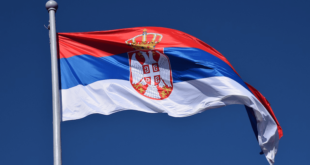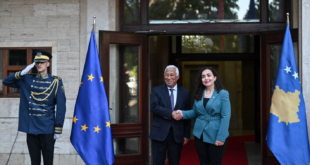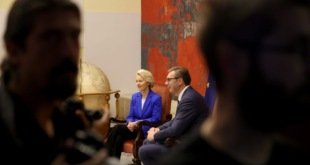The Serbian government has denied claims it is attempting to prepare the public for a withdrawal of its proposed UN resolution on Kosovo’s declaration of independence.
Serbian opposition parties and political analysts have claimed Belgrade has abandoned the belief that the resolution, in its current form, can be adopted by the UN General Assembly, UN GA.
The reactions came a day after Serbian Foreign Minister Vuk Jeremic announced that “it was almost impossible Serbia will be able to convince enough governments to support the resolution”.
Dragan Todorovic, the leader of the opposition Radical Party, said: “The foreign minister’s statement seems to me a preparation for a bad outcome in New York, or for some sudden changes in Serbian diplomacy.”
Political analyst Dusan Janjic agreed the statement could mean the withdrawal of the resolution, its change or preparation of the public for the possibility that UN GA will not adopt it.
“Of course Serbia is going to get one more knock-back, but I think this statement could at least prepare public for it,” Janjic said.
The daily Vecernje Novosti reported the EU was still trying to convince Serbia to adopt changes to the resolution.
“Consultation between EU countries are very intense,” Slovenian FM Juraj Tomaga told the newspaper.
Suzana Grubjesic, vice president of the G17 party, a member of the ruling coalition, said: “It would be better to rewrite the resolution’s text and get support from EU countries, rather than trying to get votes from Non-Aligned movement countries.”
Milos Andjic, the secretary in the Serbian Renewal Movement in the governing coalition, said Serbia must immediately change its policy and co-ordinate its moves with EU.
But Serbian press reports say the official Belgrade position is that it is not considering changing the resolution text.
Jelena Trvian, the spokesperson for the Serbian Democratic party, the ruling party in the governing coalition, said the changes suggested by some political parties might be considered as “giving up fighting for Kosovo”.
“That would be a new policy for which no one in Serbia has a legitimate right, nor the support of citizens,” Trivan said.
Serbia submitted the resolution on July 28, just six days after the International Court of Justice, ICJ, found that Kosovo’s 2008 declaration of independence did not violate international law.
The resolution states that unilateral secession is not an acceptable means to solve territorial disputes.
The resolution also calls for dialogue as a way to reach mutually acceptable solutions “for all open issues” in the interest of peace, safety and co-operation in the region.
Kosovo, which pronounced independence in 2008, is now recognised by 69 out of 192 UN member states.
Kosovo was a part of Serbia until 1999.
After NATO’s intervention the same year the territory came under the interim administration of the United Nations Mission in Kosovo, under UN Security Council Resolution 1244.
 Eurasia Press & News
Eurasia Press & News



